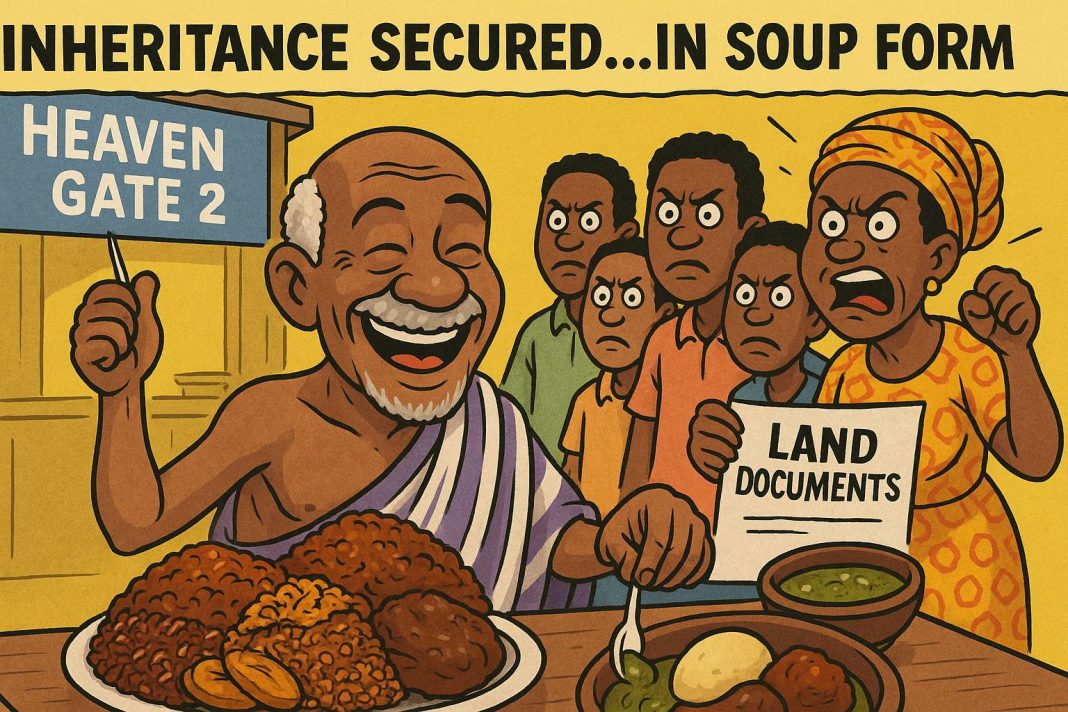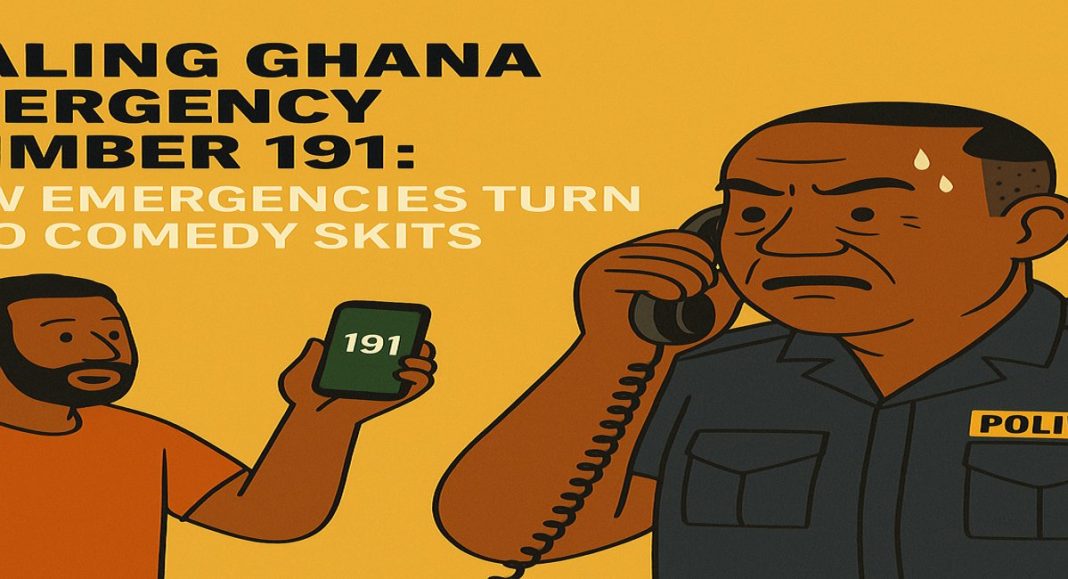Prophecy satire has officially gone bureaucratic in the Republic of Uncommon Sense. The Office of the Presidential Envoy for Interfaith and Ecumenical Relations now wants prophecies filed, stamped, and reviewed—as if visions were customs goods entering the country. Angels queue, pastors clutch manila folders, and someone in Berekum swears the Vice President’s destiny was revealed in a bowl of koko at dawn.
According to the new directive, inspired by a week of national mourning and even longer national meetings, all spiritual bulletins must attach Form P-666 in triplicate—plus two passport photos of the angel who delivered the memo. Processing time: three to forty business days, depending on whether the Holy Spirit selected Express Service while descending.
Why Prophecy Satire Matters in the Republic
Satire works because it compresses what the press release inflates. The Prophecy Clearance House promises “peace and prosperity,” which is administrative for “we’ll edit Heaven before publication.” Meanwhile, Kojo Memsah suggests we could save money by buying charlatans Netflix subscriptions instead. Others propose the faster option: simply put Parliament under a giant colander to sieve the visions from the vapor.
And yet we keep building STEM schools, universities, and brain labs, only to outsource national decision-making to a man who says he saw the budget in a cloud shaped like a goat. At the very least, let’s fix the Accra–Kumasi road—potholes don’t speak in tongues, they only mutter in shocks and struts.
Prefer your satire with extra pepper? Visit our archive in Satirical Chronicles for more Republic-grade nonsense refined into truth.
A Gentle Nudge From the Stars (No Queue Required)
Curious what the month is trying to tell you? This reader-favorite cosmic brief takes about 60 seconds to open and doesn’t ask for your baptism card.
Optimists say licenses will bring order: QR-coded prophecies, expiry dates, and compliance audits for rogue angels. Realists fear a facilitation fee will make even the apocalypse pass review. The first government-approved national prophecy is rumored to feature a white horse, a gas cylinder, and a minister spotted buying gently-used wigs in Kantamanto—pending red-pen clearance, of course.
Why Prophecy Satire Still Matters
In the Republic of Uncommon Sense, prophecy satire is not just comedy; it is a public service. When angels line up with P-666 forms and pastors rehearse their “God said” speeches, the satirist steps in with a mirror sharper than any pulpit microphone. Satire clears visions faster than photocopiers at Jubilee House, and unlike national press conferences, it does not require protocol officers or chilled bottled water. That is why readers return week after week—because in a land where truth often hides behind tinted windows, satire walks proudly in open sandals. And if laughter is medicine, then satire is the Republic’s health insurance policy, free of charge and payable only in chuckles.
Ghana once imported used clothes; now we import used visions—steamed, pressed, and repackaged for national consumption. That’s why prophecy satire belongs in the conversation: it keeps us laughing while we check the receipt.
If this gave you a grin, share it: the Republic survives on laughter and links.
Jimmy Aglah, Resident Satirist, Republic of Uncommon Sense.










